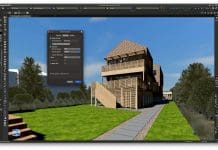RICS ‘ BIM training is offered in various formats and at different levels of competency, says Alan Muse, Global Director of Built Environment Professional Groups
Much of the training on BIM concentrates on design aspects. To draw clients into BIM more, training also needs to focus on the business management issues related to BIM. In particular, how can we facilitate the interaction of cost, time and asset operational data in BIM models to improve client decision-making? RICS is at the forefront of providing global training in this area.
RICS offer BIM training across various formats and for people at different levels of their career. For those starting their BIM journey, RICS have a short (1.5 hour) introductory web class (BIM: introduction), and a second web class developing professional’s knowledge around the processes for BIM project methods and implementation (BIM: Methodology and Implementation).
Aimed at a similar level, but for those who prefer face to face training, we have a one day course on implementation and management that includes case studies (BIM Implementation and Management – Purpose, Benefits and Challenges).
Managing the BIM process
For those looking to manage the BIM process from start to finish, RICS have a 6-month distance learning programme on project management with BIM (Certificate in Building Information Modelling (BIM): Project Management). This course covers each stage of the BIM process and how to manage it. The web classes have been delivered to over 350 people since 2015, and the distance learning programme has been delivered to over 500 people since 2015.
Each course combines theory with real-world examples and best practice to meet the learning needs of professionals in the built environment. Taught by leading project management and commercial experts in BIM, RICS training provides practical tools and skills for professionals to apply in their work, further their personal development and career, and improve the efficiency and effectiveness of the projects they work on.
Ongoing review process
However, BIM is constantly evolving and so is the level of knowledge in the sector. The challenge RICS have is to keep the courses up to date and relevant to the needs at the time. RICS do this by having an ongoing review process and working with the trainers to include any changes. For their last delivery of the ‘Certificate in BIM: Project Management ‘, 90% of attendees would recommend the course to a friend or colleague, and the course has sold out three times this year.
Our future plans will be to continue to look for ways RICS can support the uptake and development of skills in the industry as BIM progresses. So RICS is looking at BIM for Cost Managers and BIM for FM as areas where training can make a real impact.
Also, RICS provides a BIM Manager Certification. The certification provides ongoing quality assurance for BIM professionals experienced in championing, implementing and delivering BIM on construction projects. These are the practical leaders of BIM in the market who can demonstrate their commitment to realising the benefits of BIM.
Following written assessment against RICS BIM competencies, successful applicants are awarded the RICS Certified BIM Manager title. Their competence is monitored every three years, through independent complaints handling, annual continuing professional development and reassessment
Since 2014, RICS have certified 41 BIM Managers. BIM professionals are continuing to recognise and apply for certification, and we are witnessing growing demand in the Middle East and Southeast Asia.
Both the training and certification depend upon RICS developing links with technology companies. The RICS Tech Affiliate Program (TAP) is intended to increase awareness and adoption of technology in the real estate and built environment sectors, benefiting both RICS professionals and the wider market.
It is open to any business offering data and technology solutions in this space and provides an opportunity for companies to build a professional profile and receive benefits throughout the year. The programme is open to any business offering data and technology solutions to the sector, from start-ups to large multi-national organisations.
The benefits of joining this programme may be summarised as:
- Network – Be a part of this expanding network and participate in seminars and events;
- Profile – Build profile and awareness of your products and services in the market with use of RICS Tech Affiliate Logo demonstrating your participation in the Program;
- Market intelligence – Gain understanding of market needs and guidance on interpretation of our standards and best practice and access selected RICS market research and market intelligence.
If you are interested in learning more, please e-mail techaffiliate@rics.org.
Through engaging with the wider technology market in this way in this fast-moving sector, RICS can continue to develop training programmes that equip the modern professional with the skills to embrace technological change.
Alan Muse (Hons)MSc FRICS
Global Director of Built Environment Professional Groups
RICS
contactrics@rics.org













